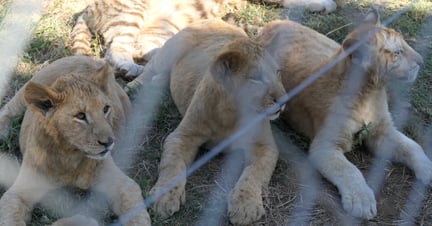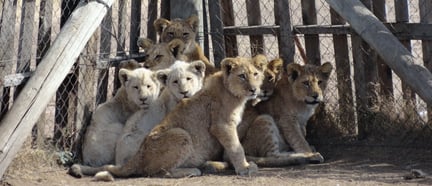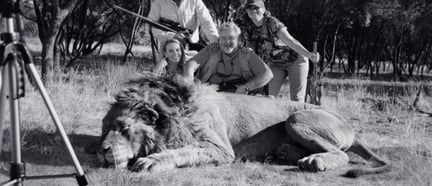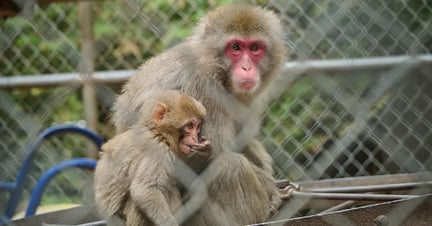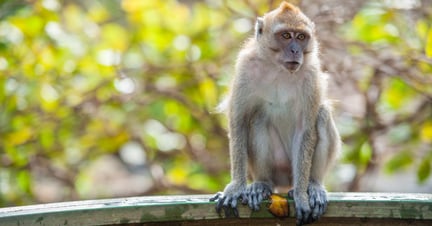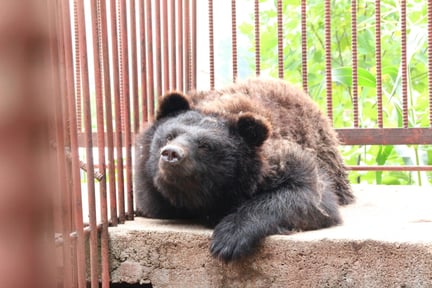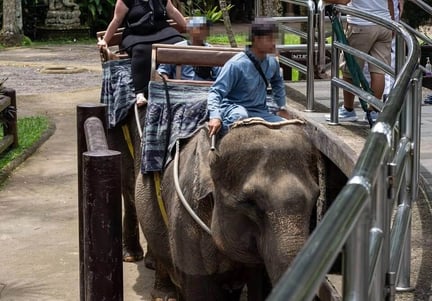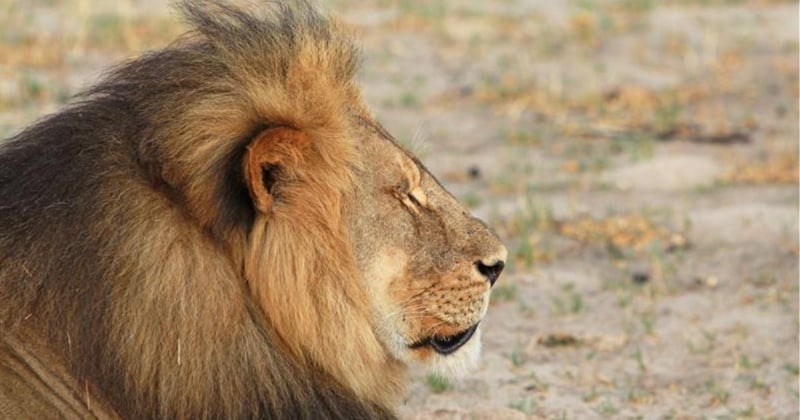
The stance on trophy hunting 10 years on from Cecil's death
News
A decade after the brutal killing of Cecil the Lion shocked the world, new findings suggest a turning point in the future of wildlife tourism.
On 1 July 2015, Cecil the lion was shot and fatally wounded by an American trophy hunter who paid US$50,000 for the kill.
The 13-year-old lion was left to suffer for hours before he died, prompting global outrage, widespread media coverage and a surge of condemnation on social media.
Cecil's death became a turning point, galvanising international efforts to end trophy hunting and protect wild animals from exploitation.
Ten years on, new research from South Africa reveals that this momentum has only strengthened.
More than 85% of community members living near Kruger National Park South Africa support a lion protection fee
A new study shows that over 85% of community members living near Kruger National Park South Africa support the introduction of a lion protection fee, also known as a 'lion levy'.
This small fee would help fund lion protection, rather than the exploitation of lions through trophy hunting.
The strong backing from local communities follows on from our 2023 research, which found that more than 80% of international tourists would also support a lion protection fee during their travels.
Together, these findings send a powerful message: both local residents and global visitors want to see lions protected, not exploited for trophy hunting.
A lion levy could help end trophy hunting
The lion levy is a simple concept that would ensure that wildlife tourism directly funds lion conservation, and benefit the communities that live alongside lions.
Rather than relying on trophy hunting for income, the lion levy presents an ethical and effective alternative, prioritising animal welfare, sustainable tourism, and community wellbeing.
Research indicates strong support among international tourists for a lion protection fee, with most willing to pay a modest amount.
Modelling in the study shows that this approach could generate revenue comparable to that of trophy hunting, making it a viable mechanism to phase out harmful wildlife exploitation industries.
Since Cecil's death, the tide has turned
Cecil's killing marked a turning point in public awareness. Since 2015, the ethical and economic legitimacy of trophy hunting has been increasingly called into question.
The global travel industry is now shifting towards responsible travel, eco-tourism and sustainable experiences. More and more, travellers are choosing compassion over killing.
This change reflects growing public demand for wildlife protection; a demand that can be met through mechanisms like the lion levy.
Honouring Cecil with lasting change
Cecil's death was not in vain. It ignited a global movement that continues to grow stronger ten years on.
People around the world are calling for real, lasting change - for a future where wild animals like Cecil are respected and protected in their natural habitats, not bred and killed for profit.
The lion levy is a bold step towards that future.
The research paper from Biological Conservation will be published publically soon. But the consensus shows that local communities and global tourists are ready to pay for protection, not exploitation.
Related content
What is wildlife farming?
Ending commercial exploitation
Wildlife farming is the commercial breeding and raising of wild animals. Learn how you can take action to prevent their exploitation.
Commercial captive lion breeding
Travel & tourism
Lions are exploited for financial gain around the world; discover what World Animal Protection is doing to put a stop to the commercial breeding industry.
Trophy hunting, an inhumane and outdated bloodsport
Wildlife
Find out more about trophy hunting and why the outdated and inhumane bloodsport will never be an acceptable approach to wildlife conservation.
